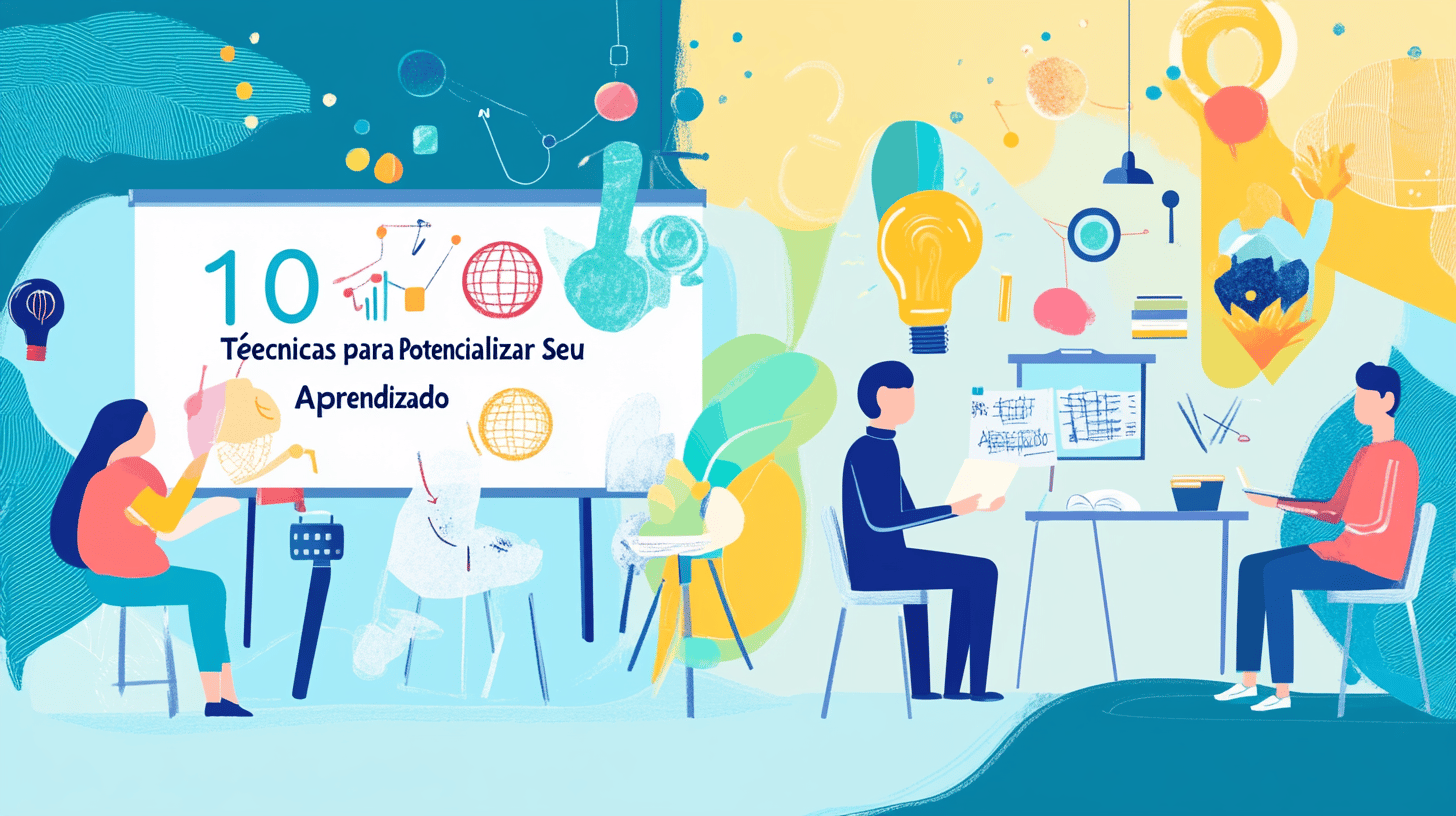The learning process is an ongoing journey, and in a rapidly changing world, it is vital to adopt methods that maximize knowledge assimilation in the best possible way. If you are looking for ways to enhance your studies and make learning more effective, this article is for you. Here are 10 techniques that can transform the way you study and provide incredible results.
1. Feynman Technique
This technique involves explaining what you’ve just learned in simple terms. Physicist Richard Feynman believed that teaching is one of the best ways to learn. By trying to explain complex concepts in your own words, you can identify gaps in your knowledge and fill them in. Try it: Pick a topic, write it down as if you were teaching it, and review it until you feel comfortable with the material.
2. Spaced (Distributed) Learning
Studies show that spreading out your study sessions (rather than doing one long, intensive session) results in better retention. This technique, known as spacing, allows your brain to consolidate information. Try to study a little each day, reviewing material in a spaced-out fashion. This will make learning more effective and less tiring.
3. Using Mind Maps
Mind maps are visual tools that help you organize information in a way that makes sense to you. They are particularly useful for reviewing complex material, as they help you see connections and hierarchies of information. Use different colors and shapes to highlight themes, subtopics, and relationships. This visual representation can improve your memory and comprehension.
4. The Pomodoro Technique
This time management technique involves studying for 25 minutes straight and then taking a 5-minute break. After four study cycles, you can take a longer break of 15 to 30 minutes. This approach prevents mental fatigue and keeps you focused, giving your brain time to process the information.
5. Self-assessment
Testing yourself is one of the most effective ways to reinforce your learning. After studying a piece of content, take practice exams or quiz yourself on the material. Self-assessment not only helps you to solidify the information, but it also allows you to identify areas where you need more practice or review. Use flashcards or study apps to make this process easier and keep the session enjoyable.
6. Active Learning
Instead of just reading or watching videos, actively engage with the material. This could include participating in discussions, taking notes, teaching someone else what you’ve learned, or applying the concepts in hands-on projects. Active learning requires you to interact with the content, which facilitates retention and increases your understanding.
7. Case Analysis and Practical Application
Studying real-life cases can make a difference in your assimilation of content. Engaging in case studies provides context for theory, making learning more relevant and interesting. Whenever possible, try to apply what you learn to practical situations or create your own scenarios to explore complex problems.
8. Creating Connections
Connecting new information to existing knowledge makes learning easier. Use analogies and examples from everyday life to connect new concepts to experiences you’ve already had. This association not only makes learning more meaningful, but it also improves long-term memory.
9. Meditation and Mindfulness
Research shows that meditation can increase your ability to concentrate and reduce anxiety. Take a few minutes each day to practice mindfulness and calm your mind. This practice helps lay a solid foundation for learning, increasing your ability to focus and absorb new material. Try meditating before study sessions to improve your performance.
10. Suitable Study Environment
An organized, distraction-free environment is crucial to effective learning. Make sure your study area is well-lit, comfortable, and has all the necessary materials at hand. Additionally, minimize interruptions by designating specific study times and alerting friends or family to avoid distractions during this time.
Conclusion
Taking a structured and deliberate approach to your studies can lead to amazing results. Try implementing one or more of these techniques into your study habits and watch your learning ability improve. Remember, it’s a process – the most important thing is to find methods that work for you and adapt as your needs change.
Call to Action
Try some of these techniques and share your experiences in the comments below! Which one do you think will have the most significant impact on your studies? Feel free to also share any other strategies you use that could benefit our community!



